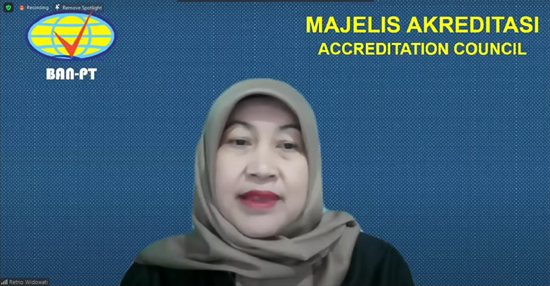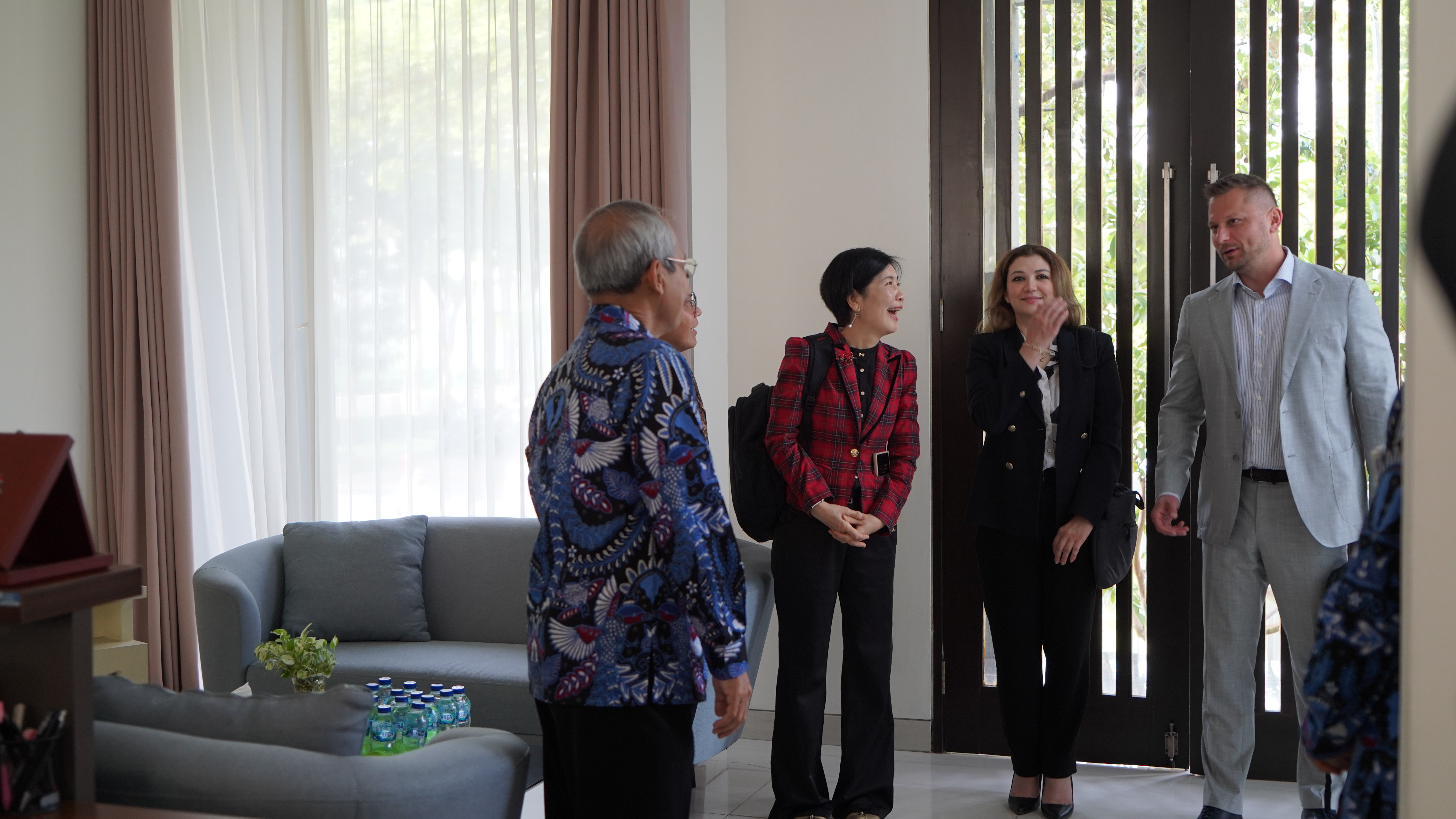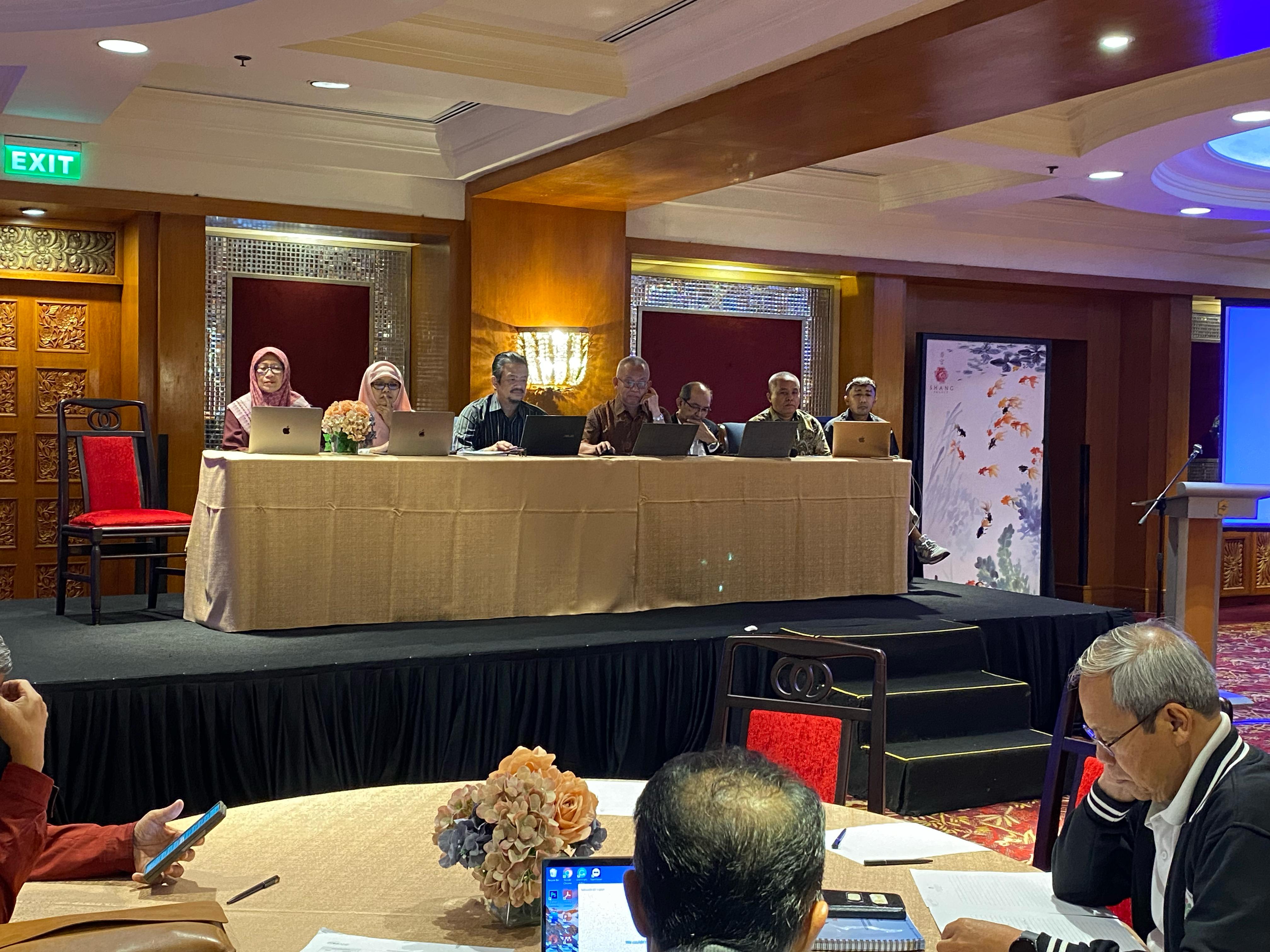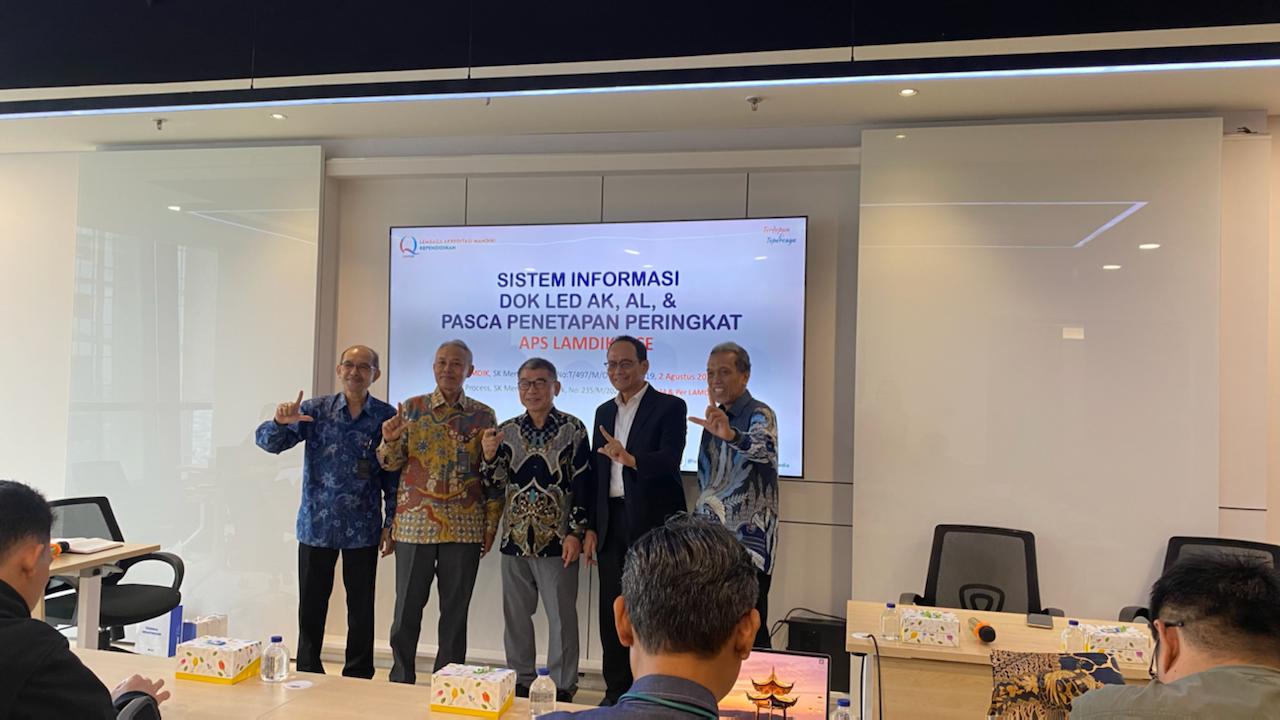Transition from BAN-PT, Five New Independent Accreditation Institutions Ready to Operate
The Directorate General of Higher Education, Research, and Technology (Ditjen Diktiristek) of the Ministry of Education, Culture, Research, and Technology of the Republic of Indonesia (Kemendikbudristek), along with the National Accreditation Board for Higher Education (BAN-PT) and the Independent Accreditation Institutes (LAM), held the launch of five new LAMs on Thursday (March 31).
 Prof. Ir. Nizam, M.Sc., DIC, Ph.D., IPU, Asean Eng., Acting Director General of Diktiristek, officiated the launch of the five new LAMs.
Prof. Ir. Nizam, M.Sc., DIC, Ph.D., IPU, Asean Eng., Acting Director General of Diktiristek, officiated the launch of the five new LAMs.
The Directorate General of Higher Education, Research, and Technology (Ditjen Diktiristek) of the Ministry of Education, Culture, Research, and Technology of the Republic of Indonesia (Kemendikbudristek), along with the National Accreditation Board for Higher Education (BAN-PT) and the Independent Accreditation Institutes (LAM), held the launch of five new LAMs on Thursday (March 31).
The five new LAMs are LAM for Engineering, LAM for Natural Sciences and Formal Sciences (SAMA), LAM for Business Management Economics and Accounting (EMBA), LAM for Informatics and Computer Science (INFOKOM), and LAM for Education. They were inaugurated by Prof. Ir. Nizam, M.Sc., DIC, Ph.D., IPU, Asean Eng.
The LAM for Health Higher Education (PTKes) has already been operational, conducting accreditation for the health sciences field, making a total of six LAMs currently operating in Indonesia.
To date, the LAM for Engineering will accredit approximately 2,100 study programs, LAM SAMA around 690 study programs, LAM EMBA around 4,000 study programs, LAM INFOKOM about 1,700 study programs, and LAM for Education will accredit 4,587 study programs.
With the operation of these six LAMs, accreditation for higher education institutions will be carried out by the National Accreditation Board, while program accreditation, as a form of public accountability, will be conducted by the Independent Accreditation Institute.
“This is in accordance with the mandate of Article 55, Paragraph 4 of Law No. 12 of 2012,” said Dr. Retno Widowati, M.Si, a member of the Accreditation Assembly (MA) of BAN-PT, representing Prof. Dr. Rer. Nat Imam Buchori S.T., Chairman of the MA of BAN-PT.
Study programs that are not included in the accreditation scope of these LAMs will still be accredited by BAN-PT until the relevant LAM is established for those specific programs. Study programs can also apply for accreditation by the appropriate LAM, following the procedures set by DE BAN-PT.
Moreover, higher education institutions can choose which LAM will carry out the accreditation for programs that fall within the accreditation scope of more than one LAM. This is regulated in the National Accreditation Board for Higher Education Regulation No. 19 of 2022.
Retno also explained that the establishment of LAMs has gone through a long process. Between 2016 and 2021, the Accreditation Assembly of BAN-PT evaluated proposals and made recommendations by visiting five LAMs, which were eventually authorized to operate.
LAMs can operate if they have become a legal entity, proven by a notarial deed and approval from the Minister of Law and Human Rights, have an accreditation instrument for programs established by the Accreditation Assembly of BAN-PT, and have received approval for the list of study programs included in the scope of the LAM from the Ministry of Education and Culture (Kemendikbudristek) through Decree No. 186/M/2021.
LAMs must also have accreditation procedures for study programs, necessary infrastructure, sufficient assessors, and approval from the relevant minister regarding the fees charged for accreditation.
 Dr. Retno Widowati, M.Si, member of the Accreditation Assembly (MA) of BAN-PT, delivered a speech.
Dr. Retno Widowati, M.Si, member of the Accreditation Assembly (MA) of BAN-PT, delivered a speech.
Prof. Ir. Nizam, M.Sc., DIC, Ph.D., IPU, Asean Eng. welcomed the new chapter in higher education in Indonesia. “This accreditation process is part of external quality assurance, so the presence of LAMs is very important for study programs,” he said.
He further explained that accreditation standards and norms should be closer to the users, society, and academic fields with the existence of LAMs. The establishment of LAMs is also expected to accelerate the reflection of changes in knowledge, professions, and the workforce.
“Two important aspects of the birth of LAMs are quality and relevance,” he continued. The establishment of LAMs is expected to maintain the quality of study programs in Indonesia and ensure that their competencies are relevant to current academic needs, the job market, and technology.
Nizam also emphasized that LAMs should not become a burden for the higher education community, but should instead work together to improve and advance the quality of higher education in Indonesia. According to him, higher education will progress when all universities are quality-conscious and collectively support the creation and implementation of LAMs.
In closing his speech, Nizam hoped that the LAMs that have been inaugurated, as well as those that are in preparation, will implement efficient systems. “I hope LAMs will continue to inspire the improvement of quality and relevance,” he concluded.




